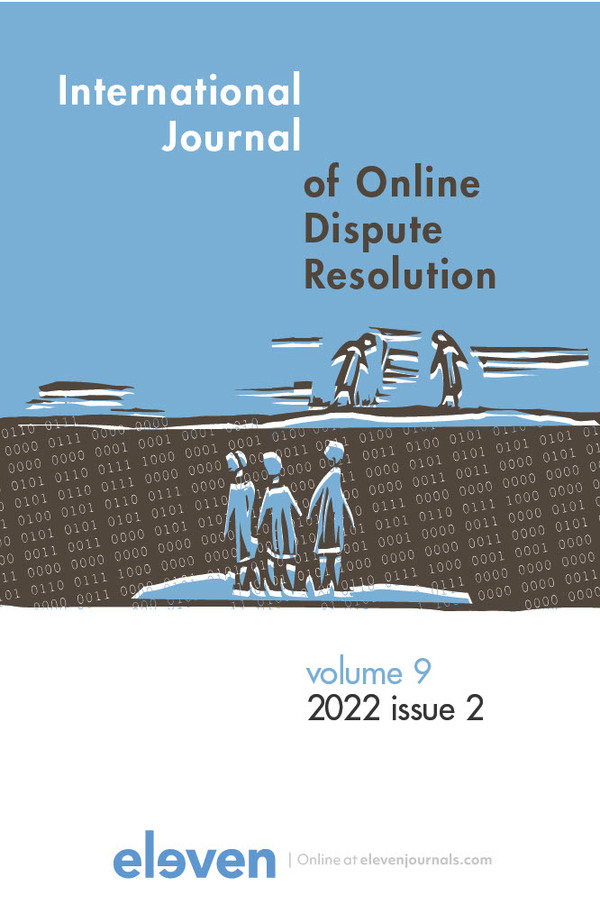|
This essay presents the observations of a founder of the dispute resolution field to new developments in online dispute resolution, expressing both concerns and hopes for greater access to justice. |


International Journal of Online Dispute Resolution
About this journalSubscribe to the email alerts for this journal here to receive notifications when a new issue is at your disposal.
| Editorial |
|
| Article |
|
| Keywords | alternative dispute resolution, justice, process pluralism, dispute system design, history of conflict resolution |
| Authors | Carrie Menkel-Meadow |
| AbstractAuthor's information |
| Article |
|
| Authors | Colin Rule |
| Article |
|
| Keywords | ODR, ethics, alternative dispute resolution, technology |
| Authors | Leah Wing |
| AbstractAuthor's information |
|
The disruptive force of technology has led to innovative dispute resolution practices that increase access to justice and also raise new ethical considerations. In response, there have been assertions about the importance of applying to online dispute resolution (ODR) the shared values already enshrined within alternative dispute resolution (ADR) as well as calls to more carefully assess ways they may be insufficient or need refining to adequately address the new ethical challenges emerging in ODR. As ODR is increasingly incorporated into legislation, regulation and a wide variety of sectors in society, it is timely to explore the importance of ethical principles specifically for ODR. In the hope of contributing to these efforts, this article examines the benefits and challenges of articulating a set of ethical principles to guide the development and implementation of ODR systems, technology and processes. |
| Article |
|
| Authors | Daniel Rainey |
| Author's information |
| Article |
|
| Keywords | ODR, China, electronic commerce disputes |
| Authors | Jie Zheng |
| AbstractAuthor's information |
|
Online dispute resolution (ODR) has been developed in response to the growth of disputes in electronic commerce transactions. It is based on the legal framework of alternative dispute resolution (ADR) by taking into consideration electronic communications and information technology. This article will introduce the current legal framework and practice of ODR in China, find legal issues that affect the development of ODR and, finally, propose suggestions to overcome these barriers. |
| Article |
|
| Keywords | Pakistan, Balochistan, Ombudsman, capacity building, Online Dispute Resolution |
| Authors | Frank Fowlie and Sher Shah Khan |
| AbstractAuthor's information |
|
In August 2015 Dr. Frank Fowlie, a Fellow with the National Centre for Technology and Dispute Resolution at the University of Massachusetts – Amherst, acted as an external evaluator to review the Ombudsman of Balochistan. Part of his evaluation concerned the use of Online Dispute Resolution as a mechanism to increase citizen engagement with the Ombudsman. |

 Issue 2
Issue 2